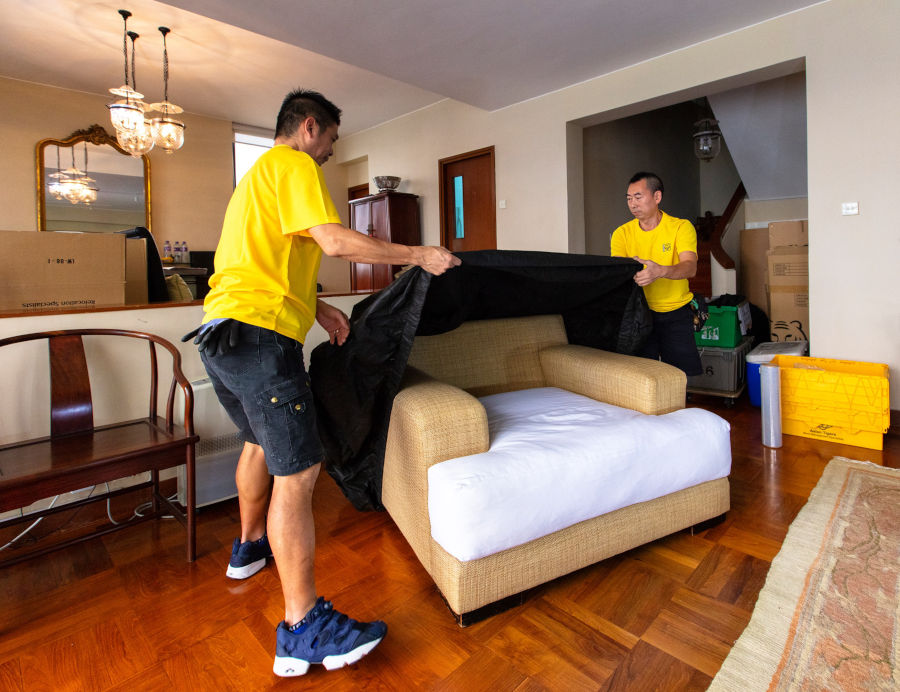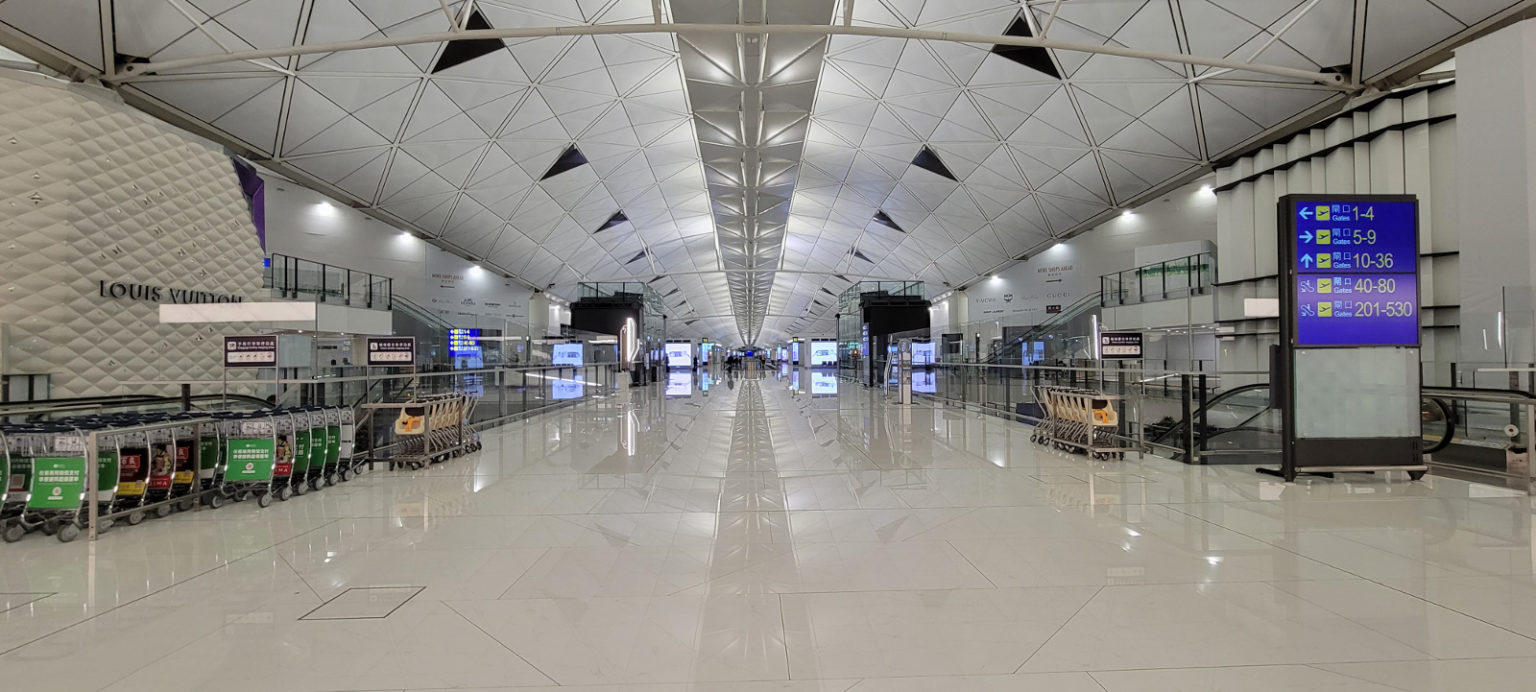Leaving a city isn’t easy, especially if it is one that’s as vibrant as Hong Kong. There are loads of things you need to wrap up, whether it’s giving your landlord notice or getting rid of your furniture. Plus, there are Covid-19 prevention requirements for international travel that you need to consider. Here’s a checklist of everything you need to do before you bid adieu to the 852.
#1 – Booking a flight out of Hong Kong
Booking tickets out of Hong Kong may be a challenge, as the government can suspend flights on a certain route for 14 days if four or more passengers on the route test positive within seven days. Although route bans do not affect outbound flights, once a non-Hong Kong airline is restricted from entering the city, the number of flights operated by that airline out of the city may decrease. Some European airlines have even stopped operating flights into and out of the city indefinitely due to air crew quarantine requirements.
So, when booking tickets, keep in mind the following points:
- Plan your departure based on which airline is least likely to receive a ban. One way to do this is by checking if a particular country has been the origin of multiple recent route bans. If, for example, multiple routes out of Jakarta have recently been suspended, it may be best to avoid booking a flight with an airline that has a major route out of Jakarta. Keep up-to-date with current route suspensions here.
- Check whether the airline you’re using will issue a refund or reschedule a flight free-of-charge in the event it gets cancelled due to Covid-19 restrictions.
- Have a backup airline and departure date in case your flight gets cancelled.
Pro tip: If you’re planning to book a flight on an airline that has a history of getting banned by the Hong Kong government, keep track of their active bans (if any) and book the first flight after they are lifted.
#2 – Check destination vaccination requirements

If you are vaccinated, there are chances that you will be exempt from certain travel restrictions, depending where you are heading to. Research whether:
- You have to undergo a PCR test upon arrival in your destination country and if you are exempt from quarantine if you are vaccinated.
- You will be denied entry to your destination if you are unvaccinated or partially vaccinated.
- Your Hong Kong vaccination record is accepted by the health authorities of the country you are travelling to. If it isn’t, you will need to get it converted into an acceptable format.
#3 – Prepare your Covid-19 test results
Many countries still require international arrivals to present proof of a negative Covid-19 PCR test. You will need to check:
- If your destination needs you to fill out a health declaration form and submit it online before your departure.
- Whether you need to undergo a pre-departure PCR test; research which Hong Kong clinics’ test results are approved by the government of your destination country.
- Book your test for the correct timeframe (usually 24 to 48 hours before departure), remembering to take transit times into account.
Note: Anyone entering Hong Kong International Airport without a ticket showing departure, transfer, or transit information needs to be vaccinated under the vaccine pass scheme.
Pro tip: Testing centres are busy, so you may not get an appointment that works with your flight test result requirements. Consider booking a PCR test first, and then booking your flight ticket based on that date.
#4 – Be aware of the visa requirements
If you are not returning to your home country (i.e. your ability to enter the country is assured), ensure that you have right to land at your destination. Certain countries only allow citizen, residents, and/or people with a valid work visa to land. If you have a valid tourist visa that was issued before the pandemic, you may still be denied entry if the country has not yet opened up to international tourists. The same may apply to pre-Covid visa-free or visa-on-arrival arrangements.
#5 – Check if there are quarantine requirements

Certain countries may still have mandatory hotel or home quarantine requirements. Ensure you are aware of them and, if applicable, make the necessary arrangements for where to stay and transportation to the location before your departure.
#6 – How to clear your taxes in Hong Kong?
One of the major things to cross off your checklist is clearing your taxes. If you are employed, here is what you need to do:
- Inform the Inland Revenue Department (IRD) of your departure from Hong Kong one month before you plan to leave.
- Complete your final tax return by taking the following documents to the tax office:
- A copy of Form IR56G completed by your employer
- Notice of termination of employment
- Notice of final payment and any other documents to support claims for deductions and allowances
- Settle your taxes and obtain your Letter of Release. You may get it on the same day if you pay your taxes in cash, via EPS, or cashier order. However, it will take up to 10 days to receive the letter if it is paid via bank transfer or cheque.
- You can expect to get your salary and final settlement from your employer after you receive your Letter of Release.
If you have other avenues of income, like rent from a property or as a businessowner, you also have to notify the IRD of your departure at least one month before you leave Hong Kong.
#7 – How to withdraw your MPF?
If you have built up a Mandatory Provident Fund (MPF) and are planning on leaving the city for good, you can bypass the normal ‘withdraw at retirement’ timeline and withdraw the funds early by following these steps:
- Call the Home Affairs Department to confirm that you are leaving the city.
- Apply for an early withdrawal of your MPF under the ‘Permanent departure from Hong Kong’ option. You will need documents such as:
- A copy of your HKID
- A completed MPF claim form
- A completed statutory declaration form
- Copy of evidence that you have the right to live in a place outside Hong Kong, such a passport or visa
- A copy of a Letter of Release by the Inland Revenue Department
- To receive your MPF from your fund provider, provide them with the following documents:
- A copy of your HKID
- A copy of your passport
- Proof you are leaving Hong Kong
- A forwarding address
- Expect the money to be deposited in your account one month after you leave.
Note: You can only withdraw your MPF early once. If you return to work in Hong Kong and create another MPF account, you can only withdraw it once you retire.
#8 – How to give notice on your rental or sell your property?
Here is what you have to consider if you rent property and need to hand in notice to the owner.
- If your departure date coincides with the end of your two-year lease period, you need to hand in your notice to the property owner, clean the property before you leave, and hand the keys back to the owner. After the owner has inspected the property and is satisfied with its condition, they should return your deposit no later than two weeks after you have handed the keys back to them.
- If you break your lease, you need to find someone to take over the lease until the existing terms expire. The new tenant may also enter into a new two-year lease with the property owner.
If you own the property that you’re leaving, contact an estate agent to discuss renting it out or selling it.
#9 – Closing your bank account
Head to your bank and ask how you can close your account or whether you can access your funds in your account from abroad. If you need to close your Hong Kong account and transfer money to a new account in a foreign currency, you can use services like Western Union, Wise, or Instarem. It’s worth it to spend a bit more time comparing transfer providers to make sure you lose as little money as possible in transfer rates and service fees.
#10 – How to leave with your pets?

Many pet owners who leave Hong Kong want to take their furry friends with them. There are many pet travel agencies in the city that provide an IATA Travel Crate, assistance with transporting pets to the airport, and help with check-in. However, these services can be quite expensive. You can make the arrangements yourself and save quite a bit in the process.
#11 – How to terminate your domestic worker’s contract?
If you employ a domestic worker, you will have to give them proper notice and settle all their final payments before you leave the city. Here’s what you should do:
- Give your domestic worker one month’s notice or one month’s wages in lieu of notice in writing.
- Clear all outstanding payments for:
- Untaken annual leave
- End-of-year payment
- Severance payment (if your domestic worker has worked for you for over 24 months)
- Long-service payment (if your domestic worker has worked for you continuously for five years or longer)
- Notify the Foreign Domestic Helpers section of the Immigration Department using this form about your decision to terminate your domestic worker’s contract within 7 days of their last working day.
Note: All payments should be made within seven days of the domestic worker’s last working day. However, the severance payment should be paid within two months after you’ve served them notice. Use this guide to calculate severance and long-service payments.
#12 – How to disconnect your utilities?
Most utility providers in Hong Kong need deposits for residents to avail their services. When you decide to leave the city, you’ll need to settle your bills, and most importantly, get your deposits back. The process is usually very straightforward. You can get in touch with your providers even a couple of months before you leave to ask them the best way to go about it. It’s important to make a list of service providers you need in get in touch with to avoid missing any; the major ones are electricity, gas, Internet, water, and phone plan.
#13 – How to get rid of your furniture?
Shipping costs in Hong Kong can be expensive, so it’s hardly surprising that most people who are relocating want to offload larger items such as furniture before their departure. There are quite a few ways to do this that do not involve sending your furniture to a landfill.
Sell online:
- Try selling your furniture on websites such as Geoexpat, Asiaxpat, Carousell, or Facebook Marketplace.
- There are Facebook groups such as HK Home Decor Furniture Buy, Swap, Sell & Trade Hong Kong, Swap-it-Furnitures Hong Kong, or 2nd Chance. Also try selling furniture within your neighbourhood using area-specific Facebook groups as a platform.
Donate:
- Crossroads Foundation: The organisation collects furniture and home products that can be recycled, as well as stationery, electronic items, kitchenware, clothing, and educational items for donation.
- Happyshop: This company promotes sustainability by recycling and repurposing all kinds of furniture. Just make sure that your donations are in good enough condition to be used by someone else.
- Green Dot Home: You can donate sofas, TV stands, coffee tables, bookshelves, office tables, and bed frames in usable condition that don’t have visible signs of wear and tear. Some of your items will be given away to those in need, while others will be sold and the proceeds donated to charitable organisations.
- DB Mothers & Friends: This Discovery Bay-based social enterprise provides a collection and redistribution service for donated items to people in need across Hong Kong. Collection appointments are scheduled on Saturdays and you have to pay for the service.
- Rehoming & Donating Goods to Reduce Waste in Hong Kong: This group connects charities looking for donated goods with people who want to donate furniture and other used products. (Note: Check whether these organisations provide pick-up services and whether there is a charge.)
If you haven’t been able to sell or donate your furniture, find the nearest refuse collection centre and either get it delivered or transport it there yourself.
#14 – How to ship your belongings out of Hong Kong?

Once you’ve gotten rid of your furniture and pared everything down to a ‘keep’ pile, you have to ship your belongings to your destination. Here’s what you should consider when picking a moving company:
- Pricing: This will depend on the number of rooms and the number of boxes and items you have, how accessible your house is (e.g. stairs versus lifts), and whether you have specialty items that require special packing (e.g. antique furniture or a piano). Here’s a pro tip: Weekends may be more convenient for you, but moving services are generally more expensive then. Try scheduling the movers to come on a weekday.
- Services offered: Do you need movers who can also help with pet relocation? Would you prefer them to handle the hassles of customs clearance? Do you need storage for your belongings if you haven’t figured out where you’re staying once you arrive at your destination? Factor all of this in when you get an estimate.
- When to book a company: Try to book as early as possible because this will give you time to dispose of things you don’t want to take with you. You may also be able to avail discounts and offers if you book early.
- Local versus international companies: Some local companies can also be very experienced with international moves and tend to be cheaper than their international counterparts. However, if you want additional services like customs clearance and a contact point at your destination, you may want to consider a global moving company.
#15 – Don’t forget to cancel your memberships
Remember to cancel your gym membership or transfer it to someone else before you leave Hong Kong. If you’re a member of a recreational club, you should cancel your membership and get your deposit back.
#16 – Will you leave without a Hong Kong-themed souvenir?

Don’t forget to pick up some keepsakes from your time in the 852, whether it’s for yourself or family and friends. Here’s our list of Hong Kong-inspired souvenirs that you should find the space in your luggage for.
If you have any specific questions about moving out of the city, you can always reach out to fellow Hongkongers online for helpful information. Your best bets on Facebook are Hong Kong Moms, where not just parenting topics are supportively answered but also common questions about life in the SAR, or the newer Expatriating out of HK support group.




